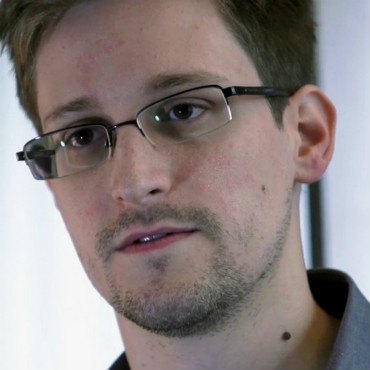Lawmakers: Snowden a fabricator, not a whistleblower
Edward Snowden, the former NSA contractor who stole and leaked sensitive documents was a disgruntled employee and liar who is in league with Russian intelligence, says a newly declassified House Intelligence Committee report.

Edward Snowden. (Photo credit: Laura Poitras / Praxis Films. Used under Creative Commons license)
The House Permanent Select Committee on Intelligence says that NSA contractor Edward Snowden is not a whistleblower, but rather is a "serial exaggerator and fabricator" who is in league with Russian intelligence and "caused tremendous damage to national security."
According to a newly declassified, but heavily redacted, report by the committee, "the public narrative popularized by Snowden and his allies is rife with falsehoods, exaggerations, and crucial omissions, a pattern that began before he stole 1.5 million sensitive documents."
The report, which was completed Sep. 15, 2016, after two years of investigation, paints Snowden as a consistently disgruntled employee who regularly clashed with superiors and broke internal protocols at the CIA, National Security Agency and in his contractor jobs. The report accuses Snowden of lying about his education, Army service and employment history.
One interesting anecdote details his time as a contractor. Snowden, as a Dell employee at NSA Hawaii in 2012, was criticized by an NSA employee via email for a problem with a patch installed on servers on a classified system which caused a crash and temporary loss of access at several NSA sites. Snowden sent an email reply, adding a very senior NSA manager to the email thread, describing the criticism as "not appropriate and..not helpful."
This drew a quick rebuke from an NSA civilian employee who wrote to Snowden, "Under no circumstances will any contractor call out or point fingers at any government manager, whether you agree with their handling of an issue or not."
The report suggests that this episode may have formed some animus toward NSA and contributed motivation for Snowden's leak of classified materials.
"Contrary to his public claims that he notified numerous NSA officials about what he believed to be illegal intelligence collection, the Committee found no evidence that Snowden took any official effort to express concerns about U.S. intelligence activities…to any oversight officials within the US government, despite numerous avenues for him to do so," states the report.
The Committee stated in the report that a variety of whistleblower protections were available to Snowden and yet he instead chose to publicly release information not just on the NSA's surveillance programs, but also information that put U.S. troops and counterterrorism programs and personnel at risk.
Snowden took to Twitter to defend himself and challenge many of the assertions in the report. He pointed to a Sep. 16, 2016 article by journalist Barton Gellman that debunked a number of claims the HPSCI made in the summary it released on Sep. 15.
Gellman, who was part of the Washington Post's Pulitzer Prize winning team that covered the Snowden leaks in 2013, characterized the HPSCI report as "aggressively dishonest," "contemptuous of fact" and "trifling."
"After three years of investigation and millions of dollars, they can present no evidence of harmful intent, foreign influence, or harm," tweeted Snowden.
"They document me going, again and again -- over years, despite punishments -- to superiors to report complaints of waste, fraud, and abuse," he continued. "They characterize many of the best things I ever did -- standing up for co-workers, reporting XSS vulns in TS/SCI systems -- as wrongs."
Snowden directly refuted a number of claims in the HPSCI report. He said he did not attend a hacker conference and complement the Chinese as the report alleges. He also denied being "in cahoots with Russian intel."
"Bottom line: this report's core claims are made without evidence, and are often contrary to both common sense and the public record," Snowden replied.
In addition to criticizing Snowden's character and actions, the HPSCI report also takes the intelligence community to task for failing to take appropriate action to eliminate vulnerabilities and implement procedures to prevent future document thefts.
"Although it is impossible to reduce the chance of another Snowden to zero, more work can and should be done to improve the security of the people and computer networks that keep America's most closely held secrets," said the Committee. "For instance, a recent DOD Inspector General report directed by the Committee found that NSA has yet to affectively implement its post-Snowden security improvements."
"The Committee remains concerned that NSA, and the IC as a whole, have not done enough to reduce the chances of future insider threats like Snowden," the report states.





